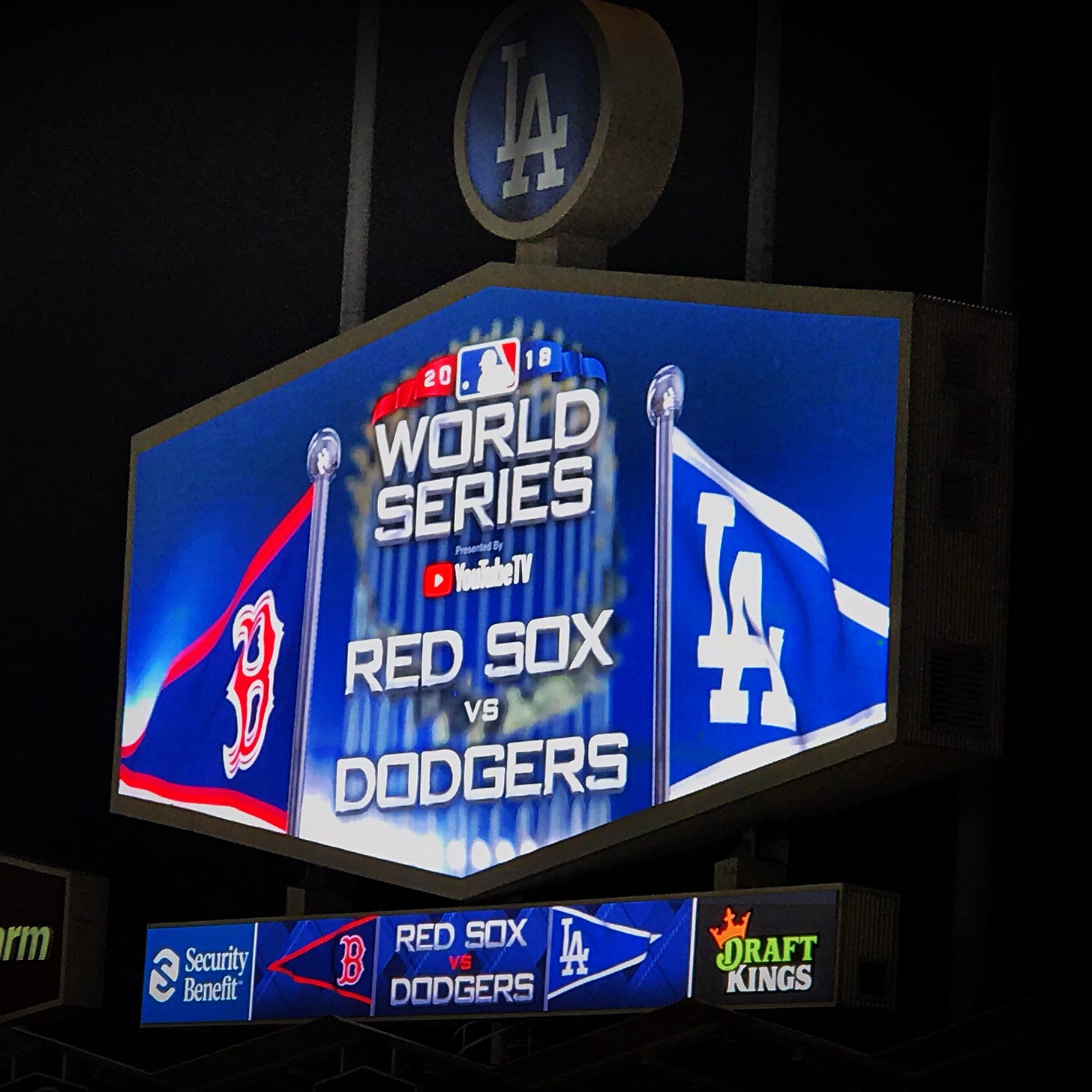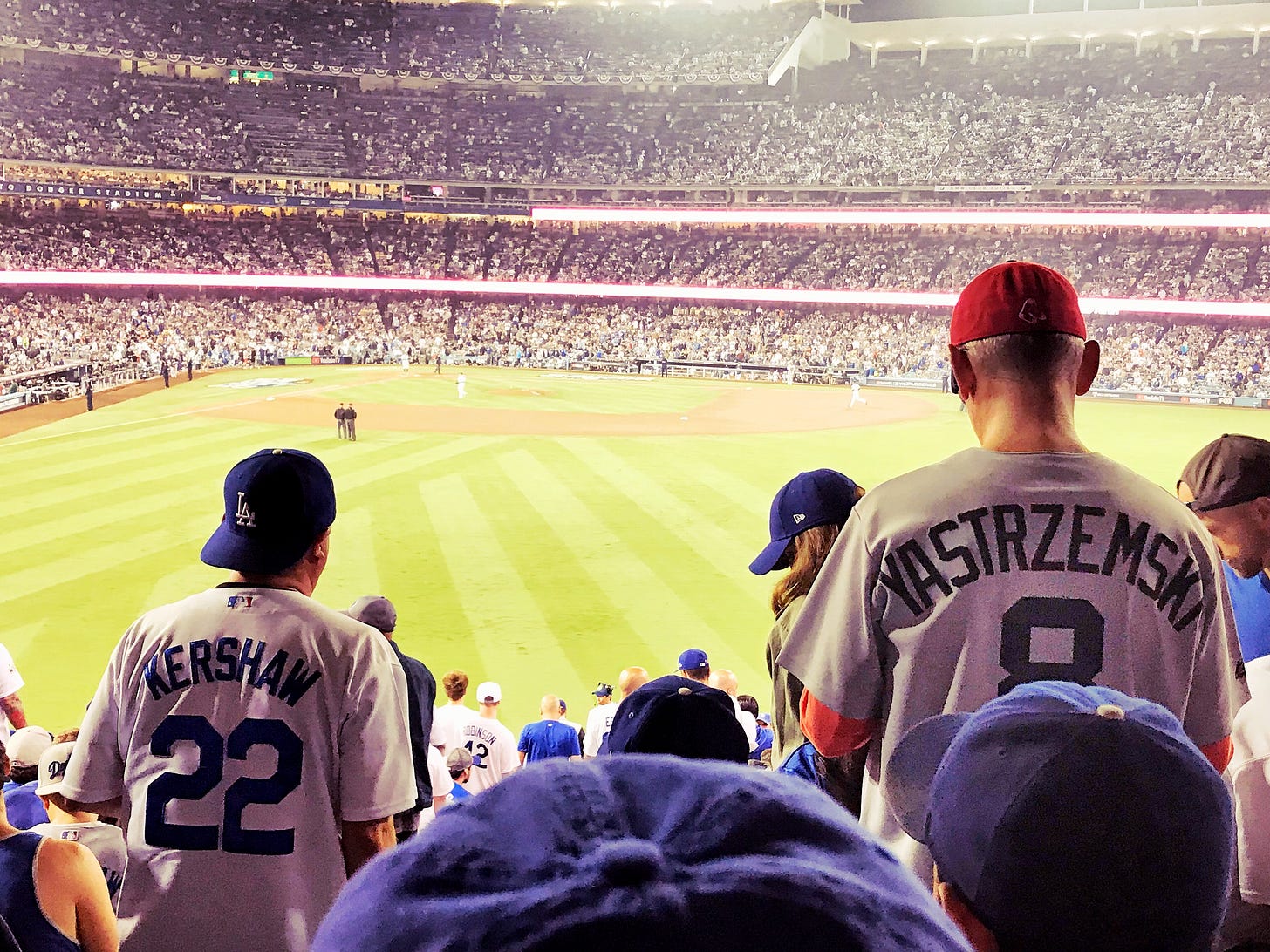Access and competition are the backbone of both sports and democracy. When the playing field is narrowed—whether by dismantling DEI initiatives or erasing essential stories from our shared history—everyone loses. Like Jackie Robinson’s entrance into Major League Baseball, true progress requires breaking barriers and expanding opportunities. America thrives when everyone has a chance to step up to the plate. Are we willing to fight for that fundamental fairness?
Lessons from America’s Favorite Pastime
America is a country that loves sports. We don emblematic gear, crowd stadiums to cheer for our favorite teams, head to the pub for the World Series and Final Four, and host Super Bowl parties even if our team isn’t competing.

I grew up a Red Sox fan. Any baseball fan will tell you that cheering for the Red Sox is an emotional rollercoaster of depressing lows and unexpected highs. We win some, and we lose a lot. Like our team, we show up the following season, sporting our red, white, and blue jerseys and emblazoned hats, buying twelve-dollar beers and Fenway Franks, and pinning our hopes on a winning season. There’s always another game and another season ahead.
My wife is an enormous baseball fan. One of her bucket list items is to see every ballpark. We’ve checked off about half. Each time we visit a new park, we arrive wearing the gear from the last park we visited. The first thing we do after entering the park is head to the store to buy a new hat and T-shirt to support the home team. Then we change in the bathroom. We love being part of the experience—part of the game.
We look at the players and cheer the talent on both sides of the field, even if we hope the home team wins.

The best games are the close ones, where great catches deny home runs and home runs tie a game. Making it to the major leagues requires work and talent. At their best, sports end with the losing team congratulating the winners. Athletes learn from one another, improve their game by admitting their errors, and glean new strategies from their competitors. A sportsman or sportswoman shakes their opponent’s hand—win or lose—and commits to the next game and season.
That’s how democratic politics should work, too.
In politics, we are more than spectators. We are on the field.
Think of a candidate stepping onto the pitcher’s mound. Behind them is their team—the coaches who develop strategy, the catcher and advisers who suggest the next pitch. Ultimately, the pitcher decides what to throw. The opposing team sends up a batter, advised on which pitches to expect and which to avoid.
In this scenario, the American people aren’t just spectators; we are the umpires. We determine who throws strikes and balls, who is safe at first, and who is out at home. One wrong call can change the outcome of a game.
The Fight for Fair Play
Comparing baseball to politics might seem trite or like it minimizes the gravity of political outcomes. But the point is about competition. On a baseball diamond, it’s a contest of strategy, athleticism, and endurance. In the political arena, it’s a contest of ideas, policies, and personalities that shape our lives.
We stand at a moment when the players on the field want to eliminate any real competition. That, in effect, removes our role in the game, relegating us to mere spectators who wear colorful gear and scream from the stands.
The Attack on DEI
The attack on DEI is a smokescreen to eliminate competition. It’s a politically potent ideology that resonates with many people, but I fear few understand its implications. Far more than just DEI departments are being dismantled. This administration is stripping away representation—of people, histories, ideas, and even laws that dare to oppose or challenge its vision. That is as anti-democratic as it gets.
Erasing people from the public narrative is essential to eliminating competition. The president has appointed Vice President Vance to decide which exhibits at the Smithsonian Institute are “anti-American” and to remove them. He’s seized control of the Kennedy Center to do the same. Book banning is at an all-time high in this country. This administration is rounding up people and spiriting them away to foreign prisons without due process. They are ignoring court orders, insulting the judicial branch, threatening law firms, and belittling journalists. They’re gleefully dismantling institutions and programs meant to benefit the American people without discernment. They are demonizing groups of people according to their sexuality, gender, race, religion, ethnicity, and political affiliation. And they are bullying and condemning allied nations.
Jackie Robinson’s Legacy
Recently, the Department of Defense removed its webpage about Jackie Robinson as part of its campaign against DEI initiatives. Jackie Robinson’s success isn’t defined by his race or despite it. Robinson’s legacy is about breaking barriers to competition. His opportunity to compete was made possible by Branch Rickey’s vision and courage and strengthened by teammates like Pee Wee Reese who stood by him. By opening the game to Robinson, baseball didn’t lose anything—it gained. More people wanted to play, to cheer, to be part of something bigger. It’s no coincidence that baseball grew stronger, richer, and more exciting as it expanded.
The Call to Compete
Now is the time to stand up for the principles of true competition. Speak out against efforts to shrink the playing field. Demand fairness. Insist on rules that allow everyone a shot at the plate. We can’t afford to be spectators in our own democracy. It’s time to step up to the plate, swing for the fences, and keep the game going for all of us.
The Trump administration could use a few lessons from baseball—from Branch Rickey, Pee Wee Reese, and Jackie Robinson.




